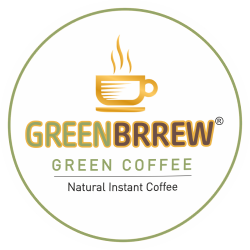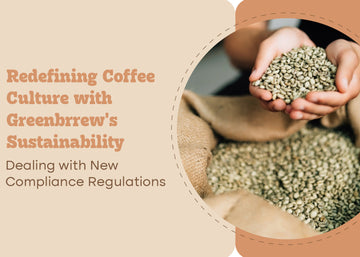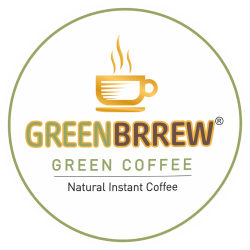Coffee market all over the world is experiencing a shift and this is mainly due to the increased emphasis on the sustainability of the markets. Coffee takes pride in being one of the most traded products in the global market and an important Product in the economies of developing countries. Nevertheless, the negative effects that coffee production has on the environment and people such as deforestation, loss of species’ genetic variability, and unfair treatment of workers are recently under radical control all over the world. New compliance framework like the European Union Deforestation Regulation (EUDR) has tailored the globalization of coffee exports by an aspiration to meet global sustainable development objectives. Such regulations put pressure on coffee exporters who have to be very specific when explaining to their coffee suppliers that their products are free from deforestation and produced sustainably. Failure to conform could attract penalties such as limited market access which greatly affect exporters relying on areas with a strict sustainability standard.
In some ways, these regulatory changes are advantageous for coffee producers and exporters but disadvantageous in others. The development of compliance mechanisms involves costs in formulation of traceability systems, certification activities and organic farming practices. Nevertheless, compliance with these standards proves that one is in good stead as far as market reputation is concerned, it unlocks one access to superior markets, and last but not the least, is dictated by the need to promote the long-term sustainability of the coffee-growing ecosystems.
EUDR: Reinventing Coffee Exportation for the Future of Sustainability
The EU’s Deforestation Regulation or the EUDR is a new frontier in international trade policy meant to address deforestation and forest degradation due to agricultural commodities. Originating in 2023, the EUDR provides that any business exporting specific goods, including coffee, to the EU must guarantee that supplying chain is deforestation-free and complies with sustainability. The regulation has far reaching consequences to coffee exporting countries especially those in areas of high risk of deforestation.
Business organizations must put in place efficient risk evaluation mechanisms for the elimination or minimization- of deforestation risks in their chains.
Compliance Monitoring:
Companies are obligated to provide reports to EU authorities documenting that they are following the regulation. There are fines and bans from the EU market for non-compliance.
Introducing new issues for coffee exporters to consider
High Costs: Setting up traceability systems and getting certifications is often expensive, and hence, a challenge for farmers of small scale.
Infrastructure Gaps: In developing countries, outside support may be scarce, and restrictions in technology might hamper compliance.
Market Access Risks: The non-compliant exporters stand to be locked out of one of the biggest coffee markets in the world.
Challenges from EUDR Compliance
Market Differentiation: Exporters which follow the EUDR can also have competitive advantage since there are consumers who prefer products that have not harmed the environment.
Sustainability Incentives: Adherence helps in implementation of proper farming practices in ways that may benefit the soil and hence productivity in future.
Strengthened Partnerships: There are various opportunities and actions taken by the governments, NGOs and businesses that are essential for leading to traceability and innovation in sustainability tools
Chances due to EUDR Compliance
Market Differentiation: Exporters that comply with the provision of the EUDR can benefit from the market appeal of green products.
Sustainability Incentives: Compliance helps in adopting environmental friendly practices in farming that will enhance production after sometime of farming on the land.
Strengthened Partnerships: That is the reason why governments, NGOs, and businesses have to join efforts in order to enhance the applicability of traceability and sustainability tools.
Certification Schemes in Coffee Exporter
Certifications for sustainability have emerged as mandatory for the coffee exporters who want serve in the market and avoid the non-compliance regulations. Labels Rainforest Alliance, Fair Trade, and Organic are effective brands that act as weapons that guarantee proper compliance with environmental, social and economic requirements for coffee production. These labels also serve to increase the value of a product in the eyes of the environmentally aware buyer; at the same time they offer definitive evidence of the company’s concern about environmental issues.
Rainforest Alliance Certification strives to make agriculture more environmentally friendly, with special emphasis for maintaining the bio-diversity and make farming a viable living for farmers. It prescribes behaviors that conserve forest, utilize land and labor in a responsible way.
In general, Fair-Trade Certification engages the principles of economy which are fairly reflected in aspects of paying equitable price for coffee, paying farmers a fair price for their berries, and respecting sectors of sustainability through practicing eco-friendly farming, and supporting community development.
Organic Certification ensures that nobody uses synthetic chemicals to produce coffee hence, promoting soil health and other ecosystem within the region.
For exporters, these certifications are much more than just market advantage: they provide assurance that operations meet standards that are increasingly required under legislation such as the EU Deforestation Regulation (EUDR). Exporters who embrace certified practices will secure and have an opportunity to secure high-end markets while furthering their partnerships ties and enhancing the achievement of sustainable development goals.
There is a good correlation between market access and certifying different standards, and customer acceptability of products Although getting these certifications requires costs such as audits and changes in processes, it is indeed rewarding.
Compliance Costs are incurred with large amounts of money at stake
The conversion to carbon-neutral coffee exports also has economic consequence, especially for growers who are often very small operators. As with most compliance solutions, getting to a solution that addresses the regulations such as the EU Deforestation Regulation entails a significant level of investment in technology and/or infrastructure. Valuable certification procedures, for example, gaining Fair Trade or Rainforest Alliance certification, increase other operational expenses, like audits and paperwork.
All these expenses may seem modest to large scale producers, but to most small-scale coffee producers, they are an issue due to constraints in capital and knowledge. Some of them fail to thrive under such tight constraints susceptible to being locked out of profitable niches. Solving these problems entails combined endeavors in terms of funding and capacity development for the small-holder farmers.
Use of advanced technology in compliance
An increased technological development is shifting the entire compliance industry in sustainable coffee exporting through innovation of supply chain integrity. Blockchain systems allow for the safe and unalterable recording of the coffee from its source all the way to the consumer. Automation of processes enhances the capturing of records relating to sustainability, as well as obtaining the needed certifications.
Geospatial mapping is therefore central in the determination of conformity of land use with regulations such as the European Union Deforestation Regulation (EUDR). As it gives accurate geographical coordinates the locations for coffee production do not includes areas effected by deforestation. These technologies ensure exporters are capable of fulfilling the regulations in addition to improving trust with consumers who are increasingly becoming conscious about the environment.
EUDR: Raises a lot of questions for the coffee-exporting countries
The European Union Deforestation Regulation (EUDR) requires coffee exporters to prove that the products they produce must not involve deforestation by 2025. This compliance requirement is meant to fight environmental decline but is burdensome to coffee exporting countries. The standards are set by European union hence if exporters do not meet these standards they can be locked out completely from the European union market leading to disturbance in export around the globe. Large producers relying on the coffee export will be in an economic disadvantage because compliance will require investments in traceability and sustainable production practices. Although these measures instill responsibility for the environment, they also speak to the challenge of having all of these measures supported equally on the international level in order to protect livelihoods while supporting the responsible development of trade.
Improves brand image, lays out a claim amidst competition
The awareness of consumers concerning the environmental-friendly coffee is putting pressure on compliance with sustainability standards. Consumers nowadays, especially in premium segments are more sensitive to ethical and environmental issues and prefer products that have addressed these issues. Such transition is attributed by consumers’ willingness to spend on products from brands that they share similar values with on issues such as sourcing of raw produce in a deforestation-free manner and evolving farming methods. Distinct labeling remains central in the attainment of these expectations. Whilst decisions about click purchases are made at home, clear and believable assurance labels like ‘no deforestation,’ sustainability labels provide the consumer the assurance of the product’s origin. Issues such as detailed identification of prices, maintenance schedules and estimation provide an effective way of building customer confidence and establishing long lasting bonds with buyers.
Opportunity here for the coffee exporters is that the path to the compliant markets that align with the buyers’ preferences is already opened, and it is possible to successfully compete there. Not only does it improve brand image but also the capability to create a niche in a competitive world. Sustainable practices and regular green communication are key issues that will assist exporters to increase the demand for green coffee and increase their market share and consumers’ confidence.
Other Opportunities
Enhanced Brand Reputation
Sustainability is laudable for its relevance with the emerging customer preference for environmentally-friendly solutions while compliance with EUDR can enhance marketability of coffee brands as ethical and environmentally friendly.
Access to Premium Markets
Sustainability certified coffee results to high priced market hence greater profitability especially in prestige markets. Those manufactures and service providers who are in a position to document compliance with the EU regulations are likely to secure competitive advantages that includes market access in a way that competitors who have not complied with the regulations cannot.
Long-Term Cost Savings
Eco friendly farming technologies like agroforestry can in the long-run lead to a decrease in the input costs. Water and soil concerns can be conserved to enhance sustainable production; hence, resource utilization is enhanced.
Climate Change Vulnerability
Sustainability helps improve the state of health of the ecosystem of coffee, it helps to minimize threats posed by climatic change. Modern farming practices such concrete and crop diversity make it easy for farmers to overcome some of the environmental challenges they are facing to ensure steady supply of their produce.
Greenbrrew: Steering the Change Process with Tradition, Innovation and Environmentally Sustainable Coffee
Today, there is a trend in the coffee industry as sustainability is further emerging as one of the most important endeavors in production and trading. Greenbrrew shows how companies can be leading this change and introducing innovation into the supply chain to meet this new and rapidly growing demand for sustainable and ethical coffee. Through establishment of sustainable operations, Greenbrrew is able to satisfy consumer needs as well as practice responsible sourcing and environmental conservation.
For the same reason, the global focus on sustainable coffee production is evident through the European Union Deforestation Regulation (EUDR). Although these regulations constitute problems especially to the scaled-up cultivators and exporters from the less developed countries, they are equal to numerous opportunities. Not only compliance provides more freedom to markets with higher prices for certified and sustainable farming practices, but also improved customer loyalty due to sustainable sourcing. Large beverage industry players such as Greenbrrew, with their promise of processing organic and fairly traded products, are examples of how a mere compliance strategy can be a point of differentiation.
In this context, management, sustainability and compliance oriented corporate entities have every likelihood of dominating the future. The commitment of Greenbrrew to delivering quality and ethically sourced green coffee, and consumers welfare is evidence that coffee exporters can transform the market. Instead, through leading change in new compliance regulations, the coffee industry has the potential to promote and support changes that make the world a better place one cup at a time. This dual approach ensures not only business sustainability but sustainable business performance in a growing dynamic market.



